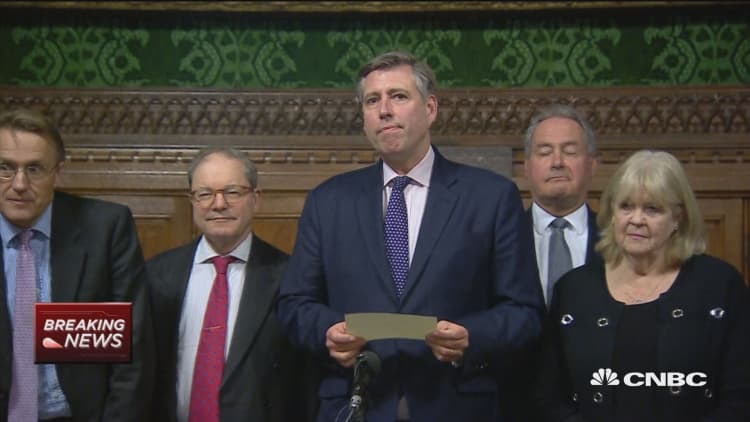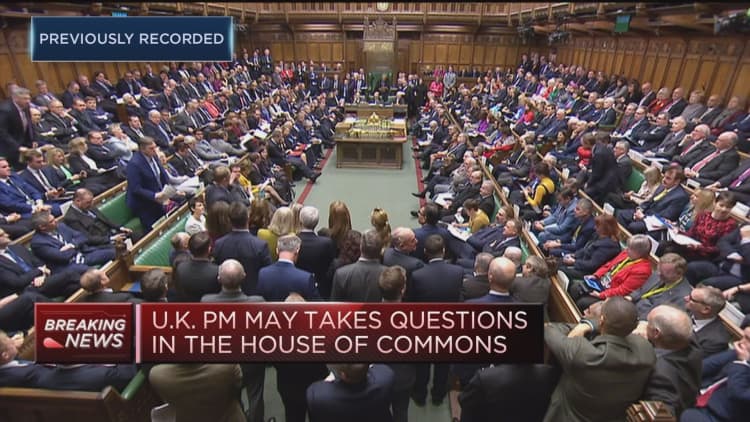
U.K. Prime Minister Theresa May has won a crucial vote of confidence in her leadership on Wednesday evening.
May won the leadership challenge by 200 votes to 117 votes against her in the ballot of Conservative members of parliament (MPs). The pound rose about 1 percent on the news.
May needed a simple majority (at least 159 out of 315 Conservative MPs) to win the confidence vote. Winning this vote means her leadership cannot be challenged for another year now.
In a statement made shortly after the vote, May acknowledged that although she won, a significant number of her party colleagues had cast ballots against her leadership.
"A significant number of colleagues cast a vote against me and I have listened to what they said," May told the press in front of 10 Downing Street.
The prime minister went on to say that it was now time to deliver "the Brexit the people voted for."
Conservative revolt
The vote was announced Wednesday after 48 Conservative members of parliament (MPs) submitted letters of no-confidence in May's leadership to the chairman of a prominent group of Conservative backbench MPs called the '1922 Committee.'
Under party rules, if 48 Conservative MPs (15 percent of the parliamentary party) submit letters of no-confidence in the party leader to the chair of the 1922 Committee, a confidence vote must be held.
The Chairman of the 1922 Committee Graham Brady said the threshold was met Tuesday evening and that he wanted the vote to be held soon after. "It is beneficial to resolve this matter as quickly and as smoothly as possible," he told .
May said Wednesday morning that she would fight the vote "with everything I've got." She also said that British voters wanted to see the government get on with Brexit, just as the U.K.'s withdrawal from the European Union (EU) looks increasingly chaotic and uncertain.
Short-lived celebration
Winning on Wednesday is essentially a brief reprieve for May and she has an uphill battle to convince not only her own party MPs, but those among the opposition, to back the Brexit deal she has struck with Europe.
The U.K. parliament was meant to vote on the deal, or "withdrawal agreement," on Tuesday but May delayed the vote amid widespread opposition to elements of the deal. For many MPs in the U.K., the most controversial part of the deal is what's known as the Northern Irish "backstop."

When the U.K. leaves the EU in March 2019 a 21-month transition period begins in which it's hoped that U.K. and EU can strike a trade deal.
If this does not happen (although the transition period could be extended) the backstop will kick in, ensuring there is no hard border between Ireland and Northern Ireland. The backstop is controversial as the measure is seen as indefinite and would mean the Northern Ireland remains largely aligned to the EU., an unpalatable prospect for many politicians in the U.K.
May traveled to the continent on Tuesday in a bid to persuade European allies to amend details around the backstop. Europe has so far refused to re-negotiate the deal, however. A European Council meeting is being held on Thursday at which Brexit will be discussed. As it stands, the U.K.'s parliament has to vote on the Brexit deal before January 21 2019. It must then be ratified by the European Parliament.
As such, delaying the U.K.'s parliamentary vote leaves little time for amendments to the deal and raises the risk of a no-deal Brexit if parliament still opposes the deal when it eventually votes on it in the new year.


